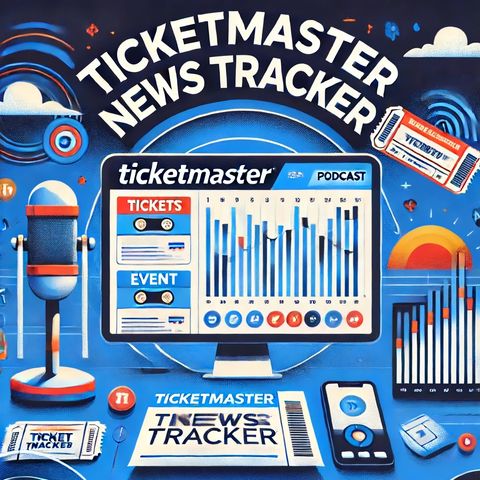Dismantling Ticketmaster's Monopoly: How the Taylor Swift Fiasco Sparked a Landmark Antitrust Battle

Descarga y escucha en cualquier lugar
Descarga tus episodios favoritos y disfrútalos, ¡dondequiera que estés! Regístrate o inicia sesión ahora para acceder a la escucha sin conexión.
The debacle surrounding the sale of tickets for Taylor Swift's latest tour underlines a major industry issue that culminated in the U.S. Department of Justice (DOG) taking action against Ticketmaster...
mostra másTaylor Swift's sale fiasco brought these issues back into the limelight, enraging fans and leading to wide public outcry over the virtual impossibility of obtaining concert tickets due to system overloads and alleged presale manipulations. This scenario underlined the challenges and frustrations that many consumers face in the current ticketing market, which is perceived to be monopolized by Ticketmaster.
The Department of Justice's resulting lawsuit against Live Nation and Ticketmaster aims to dismantle what is viewed as a monopolistic grip over the entertainment ticketing industry. The lawsuit is rooted in allegations that Live Nation's 2010 merger with Ticketmaster created an overwhelming power that suppresses competition, increases fees, and limits consumer choice in the live entertainment sector.
This legal action, however, isn't just a standalone case. Access to live entertainment touches on broader themes of market control, consumer rights, and fair trading practices. Such issues resonate on a large scale among consumers and have attracted the attention of various stakeholders including lawmakers and other regulatory bodies.
D.C. Attorney General Brian Schwalb's involvement in the lawsuit underscores the broader governmental concern over Ticketmaster's practices. Schwalb's advocacy for revamping legislation around market competition hints at a systematic approach to addressing what many see as an oligopoly in the ticket-selling industry.
The implications for consumers are significant. If the lawsuit leads to the breaking up of Ticketmaster’s alleged monopoly, it could herald a more competitive market, potentially resulting in more fair pricing, better service, and increased innovation within the ticketing industry. This could alter not just how tickets are sold but could improve the overall live event experience by making it more accessible to a broader audience.
Furthermore, the outcome of this case could set a precedent for how similar cases are handled globally, impacting international ticketing policies and practices as well. The focus on Ticketmaster may encourage other monopolistic industries to recalibrate their business strategies towards more consumer-friendly practices.
In an era where live events are crucial cultural touchpoints, the significance of this legal battle extends beyond just tickets; it's about ensuring fair access and competition in an industry that connects artists with audiences around the world. As such, the Ticketmaster litigation continues to be a pivotal case in the broader dialogue about market control and consumer rights in the digital age.
Información
| Autor | QP-4 |
| Página web | - |
| Etiquetas |
Copyright 2024 - Spreaker Inc. an iHeartMedia Company
